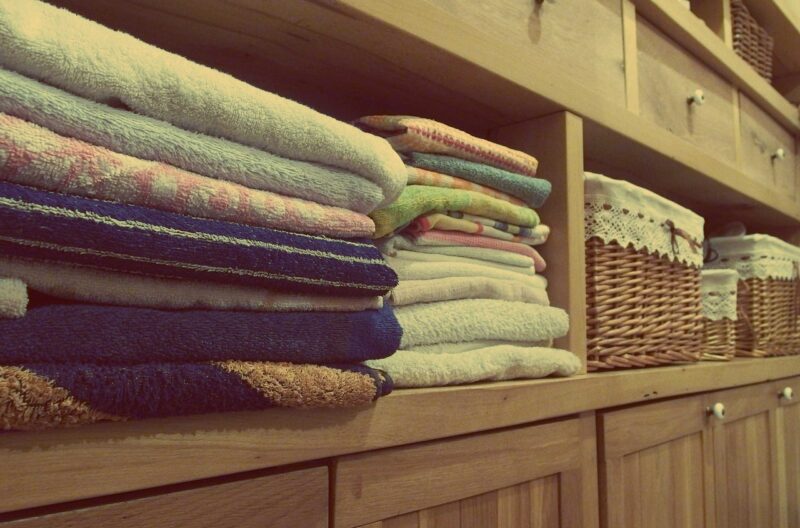What is stress?
Stress is defined as a biological response to emotional or physical tension. It can happen when we are facing a minor setback, like roadwork, or a lifechanging crisis, such as losing a job. Stress is a factor in our everyday lives and its main purpose is to help us avoid danger.
When we are stressed our bodies release a hormone that instantly makes us more alert. However, even though our bodies are programed with this helpful response, times have changed. Our ancestors were using stress to help them flee from predators and evade potentially life-threatening issues. In this digital age, often our bodies will react with a stress response when we are uncomfortable. For example, many people will experience dizziness and increased adrenaline before speaking in public but aren’t actually in any real danger while giving a presentation.
This can be detrimental if we don’t deal with it properly. Over time, unchecked stress can cause high blood pressure, heart disease, depression, and increased anxiety. Since it isn’t possible to eradicate all stressors from our lives it’s important that we equip ourselves with ways to cope.
Coping Mechanisms
As we age, we naturally pick up different coping mechanisms that help us deal with stress. When our daughter was one, she used a pacifier to self-soothe and later transitioned to using a blanket which was more age appropriate. We are built to help ourselves and pick up skills that are beneficial. What often gets overlooked is the fact that there are many damaging coping skills. These become even more prevalent when people spend the majority of their time at home. Many homesteaders or stay-at-home moms are often faced with having limited support systems due to their distance from the nearest community.
Drug use, excessive drinking, and binge eating can all be considered examples of negative coping mechanisms that are often heavily utilized by those who are isolated away from society. Working from home can help lower some stressors but it also cuts back on opportunities for socialization and can weaken support networks. It’s important to have ideas of what coping skills you can use to destress.
Below are the top ten ways I am able to cope with stressors without even leaving my house.
1. Read a Book

There are seasons of life when it just feels like nothing is running smoothly. When I feel like I need a break from reality, my favorite way to relax and distract is to pick up a book. I use the Libby app and subscribe to Prime Reading which means I’m never short on options. Reading gives me a break from playing my anxieties on an endless loop and allows me some distance from any stressors.
2. Watch a Movie/TV Show
I can’t say I watch much TV, but I am an avid fan of The Great British Baking Show. It combines two of my loves; baking and reality television. Sometimes we just need to focus on someone else’s seemingly little problems as a distraction from our real-world ones. Watching TV can give your brain a break until your ready to pick up that problem and face it again.
3. Talk it Out
Many people think venting isn’t productive, but it is a valid way to cope with stressors. I’ve often heard the analogy about shaking a pop bottle. It continues to build up pressure with each shake before it finally explodes. Venting can help release any feelings of anger and take way a lot of that pressure.
4. Sweat
We all know exercising gives you endorphins and endorphins make you happier. Conquering a workout can do a lot for lifting your mood. It can also help build mastery if you chose to build on a specific area, such as running.
5. Journal
Keeping a journal is an excellent way to process and has the dual purpose of keeping a record of your feelings. Many people “cycle” and knowing what times may be harder to cope is infinitely helpful. Personally, I tend to have rough patches every three months, but since I a tracking my feelings I know what to do to prepare for those times.
6. Take a Shower/Bath
Sometimes all you need to do is wash off the day. Not only is warm water relaxing but taking a shower or bath gives you time to use for self-care. Since I do work from home, putting on makeup and picking out a flattering outfit often falls by the wayside. Taking the time to shave, exfoliate, and condition my hair feels like a luxury and helps boost my self-esteem.
7. Unplug
Nothing stresses me out quite like social media. We live in a time where we are expected to be informed with the added pressure of having technology constantly at our fingertips. Sites like Facebook, Twitter, and Instagram are great ways to connect but there has to be a limit. I made the conscious decision to spend evenings with my daughter and not on my phone. It is too easy to get caught up in Karen’s perfect life and compare it to mine. As they say, comparison is the thief of joy.
8. Deep Breathing
Anxiety can feel overwhelming and it can be extremely difficult to manage. After getting in a car accident, I found myself experiencing panic attacks when driving in heavy traffic. Deep breathing has helped me stay grounded while also halting my panic response. When you breathe deeply it increases the amount of oxygen your brain receives and helps you reconnect with your body.
9. Organize

There are times life can feel like it is out of control. When I am neglecting myself, I am also typically neglecting our house. Organizing and cleaning can help provide a sense of order and calm. Having a place for everything and knowing where that is can also make chores or getting ready easier.
10. Radical Acceptance
There are things you cannot change and, sometimes, we will have problems that aren’t easily fixed. Instead of fighting that, there are times where it will be necessary to accept that you will have stressors. One day, your car will break down. You may be short on bills one month. Accepting that and then dealing with it lessens your battle by half. You can rail about how life is unfair but a more productive use of your time would be to move on.
De-stressing at Home
Stress is a part of being human and, since we can’t avoid it, we have to find healthy ways to deal with it. While it may be harder to find different ways to cope when you spend most of your time at home, making time to de-stress should be an important part of your day. In order to take care of others, you have to be able to take care of yourself.
What are your favorite ways to de-stress?
0


